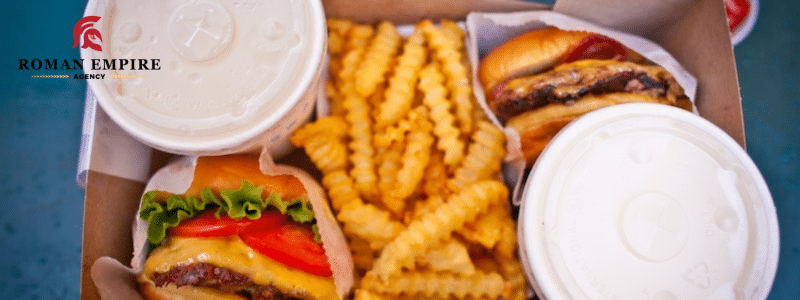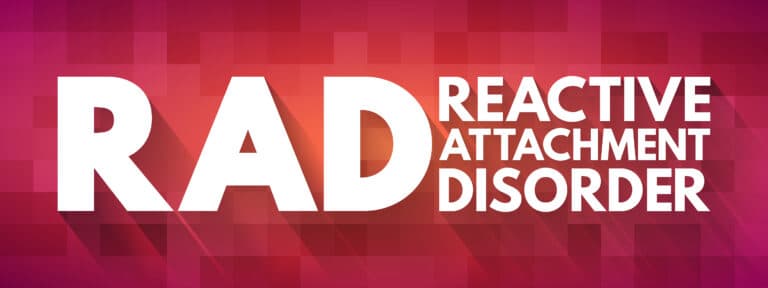
Large portions are normalized in restaurants and grocery stores, and while destructive behaviors such as self-induced starving and purging are serious problems, it is necessary to acknowledge another harmful behavior: compulsive overeating.
In this blog, we’ll look at the following questions:
- What is a compulsive overeater?
- How do you know if you are a compulsive overeater?
- What is the difference between overeating and food addiction?
- How does mental health affect overeating?
- How do you break an overeating addiction?
What is a Compulsive Overeater?
A compulsive overeater engages in uncontrollable, chronic overeating. While this behavior is associated with binge eating disorder (BED), not everyone who participates in this behavior has BED. Compulsive eating can significantly affect mental health, body image, and relationships with others.
Compulsive overeating is considered a severe mental health condition, and it does not discriminate against its victims. A person of any age, gender, race, and background can become an overeater.
How Do You Know If You Are a Compulsive Overeater?
Typically, an overeater can recognize the problem on their own. They’ll have uncontrollable urges to binge eat, sometimes daily.
Other symptoms of compulsive eating and warning signs to be aware of include:
- Eating large amounts of food in a short amount of time
- Eating until you’re uncomfortably full
- Eating when you’re not hungry
- Eating when stressed out
- Poor body image
- Hiding food, eating in private
- Social withdrawal
- Weight gain or obesity
- Depression and anxiety
- Feeling guilt or shame following a binge session
It’s common for people with compulsive eating to withdraw from social situations or feel ashamed. Likewise, lying about how much you’ve eaten or purposely hiding food you plan to eat alone are signs of compulsive eating that should be addressed.
What is the Difference Between Overeating and Food Addiction?

Overeating is an act or behavior, while food addiction refers to an actual dependency on extreme eating behaviors. Overeating and food addiction are related and often coincide, but a person who takes part in overeating doesn’t necessarily have a food addiction.
Food addiction is a psychological condition characterized by compulsive eating, intense cravings for certain foods, a loss of control (LOC), and experiencing a “high” or “release” when binging. Often, compulsive overeating includes similar symptoms, but the act doesn’t become an addiction until a biochemical dependence on food is developed.
How Does Mental Health Affect Overeating?
Both physical and emotional stress can make one more inclined to overeat. With feelings of anxiety, distress, or sadness, a person may turn to food to distract themselves from such overwhelming emotions.
Specific ingredients, like sugar or carbs, can produce soothing hormones when eaten, leading to overeating if someone suffers from mental illnesses such as anxiety or depression, as the dopamine in food will generate a temporary feeling of happiness or relief.
Overeating can then, in turn, affect mental health. Especially when overeating in front of others, someone suffering from these behaviors may feel guilt, shame, anxiety, or embarrassment. As overeating also correlates to weight gain, people typically develop lower self-esteem, body dysmorphia, or dissatisfaction with body type. While fleeting moments of peace can be found when experiencing food serotonin, mental health can take detrimental hits.
Why is Overeating Soothing?
Alongside chemical components, eating can be strongly connected with mental and physical memories. It can be linked to:
- Celebrations- parties, birthdays, anniversaries, etc. This correlation typically creates specific comfort foods.
- Childhood habits- such as being required to finish your plate or being rewarded with daily dessert.
- Muscle memory- eating due to boredom or daily habit.
Eating can soothe a person in distress by connecting what they are eating with a more pleasant time. By eating something that both tastes good and decreases stress hormones, food can become a crutch.
Is Overeating a Coping Mechanism?
Yes, using food to cope with negative emotions and circumstances is a common unhealthy habit for those who overeat. There is a multitude of factors that contribute to a person’s mental well-being (such as jobs, schooling, relationships, etc), and the description of those can cause someone to turn to food.
While there are healthy ways to deal with negative emotions, such as exercise and therapy, people also occasionally use unhealthy coping through abusing substances- which can include food. Overeating doesn’t always have to be attributed to problems with mental health, and people may binge due to other reasons such as boredom or lack of awareness.
Regardless of the underlying reasons, binge eating can cause psychological and physical health complications. The bottom line, overeating shouldn’t be encouraged or left taboo in society.
How Do You Break an Overeating Addiction?

To break an overeating addiction, you must be self-aware and practice mindfulness. When we develop a dependence on a substance, the brain will communicate an intense craving for it; making it hard to think clearly at the moment. Awareness of why and how bad habits can be created, and taking precautions before urges increase, are vital in overcoming compulsive overeating.
Consider the following practices as you work through your addiction, and always remember to gather support from friends and family you trust.
- Identify your triggers. Ask yourself what times you experience binge urges. Often, people will binge due to stress or celebratory settings. Be aware of your personal risk factors and find ways to manage these. Do you need to eat before an event so you aren’t hungry once you get there? What alternatives to stress management are there?
- Practice mindful eating. When you reach for food, take time to experience it. Mindful eating means using all your senses to boost self-awareness. What is the texture? What color and shape is it? Does it have a smell? Take slow, deliberate bites and savor the flavor.
- Keep a food journal. Not only does this help you track your cravings, but it can also make you aware of the time of day you tend to binge and connect any existing emotions or triggers. Some people who binge can go for a period of time eating normally and suddenly experience an episode. A food journal is multi-faceted, helping identify triggers and increasing self-awareness.
- Pre-plan meals. Binge eating is a spur-of-the-moment act. Even as you practice other steps, it can be easy to fall out of healthy habits when there’s nothing to eat in the fridge. A trip to the store or a drive-thru seems like a quick fix but can lead to relapse. Pre-planning what you’ll eat for the week and choosing high-protein, healthy foods is a great way to avoid last-minute meals and opt for giving in to cravings.
- Practice portion control. It’s okay to indulge in a favorite snack or dessert now and then. The key is to manage the amount you’re eating. Choosing to have one slice of pie and not four can be difficult amid a food addiction, but it can be more effective than entirely depriving yourself, often leading to a full-out binge eating session.
- Establish a sleep schedule. The benefits of a good night’s sleep are immense. When you consistently get enough Zzzs in on a regular basis, the brain can balance hormones that maintain a healthy appetite. Other ways sleep aids healthy behavior include increased energy for exercise, stress relief, and benefits to the physical appearance like skin and hair health.
- Go to therapy or a support group. Being a part of therapy and support groups allows you to develop practical tools and knowledge. Being around others who understand what you’re going through is a great way to motivate yourself and find encouragement.
- Have an accountability partner. Whether it be someone you meet in a support group or a loved one, an accountability partner can keep you focused on your goals. It isn’t something to feel ashamed of when you relapse or take a step backward in your progress. Knowing another person is rooting for you increases the healthy pressure and motivation to overcome urges.
- Staying active and hydrated. Exercise improves brain function and relieves stress. Incorporating regular fitness activities into your schedule and staying hydrated can keep your mind off cravings, keep you feeling fuller, and improve your overall mental health.






